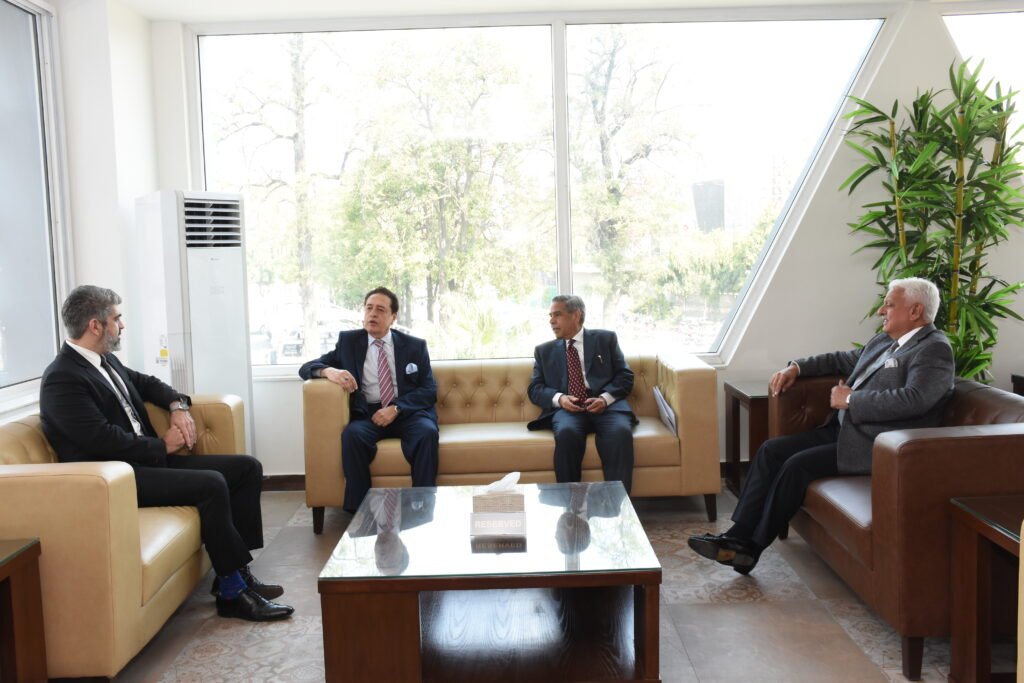
Seminar
Climate Resilience and Strategic Preparedness: Safeguarding Pakistan’s Security Interests
Climate change is wreaking havoc across the globe. Riverine and flash floods, rising sea levels, extreme temperatures, unpredictable weather patterns, alterations in precipitation, persistent droughts, forest fires, glacial retreats, and biodiversity loss are among the most common manifestations of this phenomenon. These natural disasters contribute to increased displacements, migrations, and heightened competition for decreasing ecological resources. They are also exacerbating the vulnerabilities of states with weak economic foundations, political instability, ethno-religious divisions, and limited adaptive capacities. While it was initially considered a matter of low politics, climate change has now transitioned into a serious security concern, given that it can disrupt human civilisation, instigate conflicts, and escalate intra-state violence.
Anthropogenic factors have been attributed as the root cause of these natural disasters. However, what makes the matter more concerning is the fact that states with little historical contribution to greenhouse gas emissions face the risk of being the most affected. Pakistan, with its extensive geographical expanse featuring high-altitude mountain peaks and fertile plains, faces serious consequences of climate change. It has been identified as among the states most vulnerable to climate change impacts by various global organisations like the United Nations Office for the Coordination of Humanitarian Affairs and the German Watch. The Toronto School, led by Thomas Homer Dixon, also includes it in six cases where climate-induced resource scarcity may lead to violent intrastate conflicts. Furthermore, the country’s agrarian foundation, dependence on a single shared river basin with India, and the presence of nuclear weapons also add to the complexity of the situation.
Recognising the importance of the matter, the Centre for Aerospace & Security Studies (CASS) in Lahore held a seminar titled “Climate Resilience & Strategic Preparedness: Safeguarding Pakistan’s Security Interests”. The seminar brought together experts from policy, governance, and legal domains for a comprehensive analysis and provided viable recommendations for policymakers.
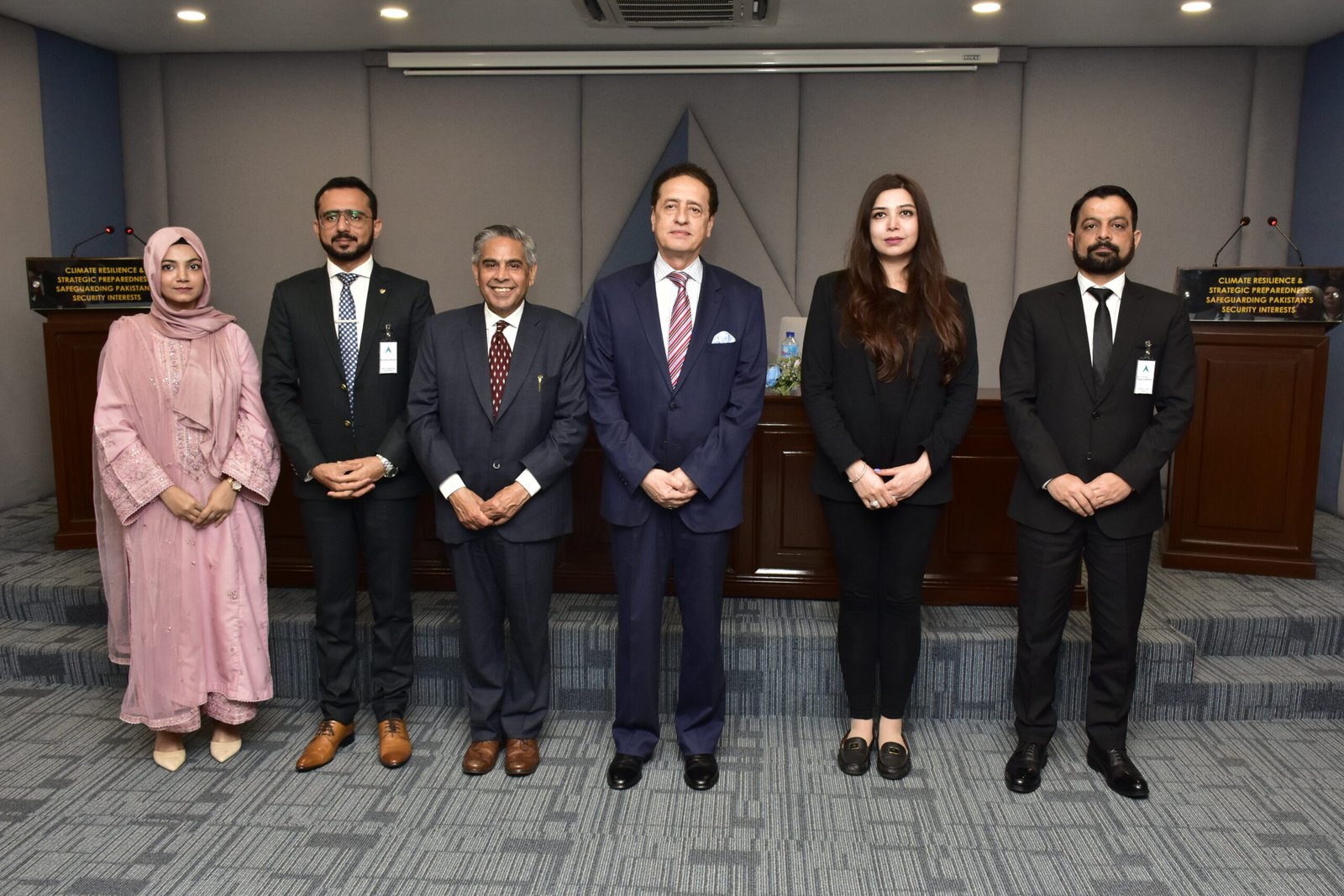
Key Takeaways
Climate change poses a serious national security threat to Pakistan by intensifying risks like civil unrest, political instability, and displacement, making it imperative to limit global warming below 1°C. Trans-boundary climate disasters such as floods and droughts further heighten conflict risks, requiring regional cooperation with countries like India and Afghanistan. While international frameworks like the UNFCCC and Paris Agreement are crucial, they must be restructured to ensure justice for low-emission developing nations. Weak climate governance—especially in planning, budgeting, and infrastructure—amplifies disaster impacts, while women face disproportionate vulnerability due to socio-economic factors. A secure and sustainable future demands targeted mitigation and adaptation strategies tailored to Pakistan’s unique needs.
Policy Considerations
Pakistan should establish a dedicated climate resilience authority under the Ministry of Climate Change to strengthen disaster preparedness and coordination. A unified climate diplomacy effort, led by the Ministries of Climate Change and Foreign Affairs, is essential to secure climate finance and green technologies, grounded in the principle of common but differentiated responsibilities. Climate-smart agriculture must be promoted to ensure food security amidst shifting climate conditions. Development planning should integrate climate risk assessments and monitoring across sectors. A whole-of-government and inclusive approach is needed, involving all levels of government, private sector, and civil society, with empowered local governments playing a key role. Women must be included in climate decision-making, necessitating gender-inclusive frameworks in relevant institutions. Lastly, climate education and awareness, supported by data and scientific knowledge, should be mainstreamed into curricula and public campaigns.

Post Event Report
A comprehensive overview featuring key insights, expert discussions, and strategic takeaways from the event.
Explore speaker highlights, recommendations, media coverage, and event photographs.
Guest Speakers
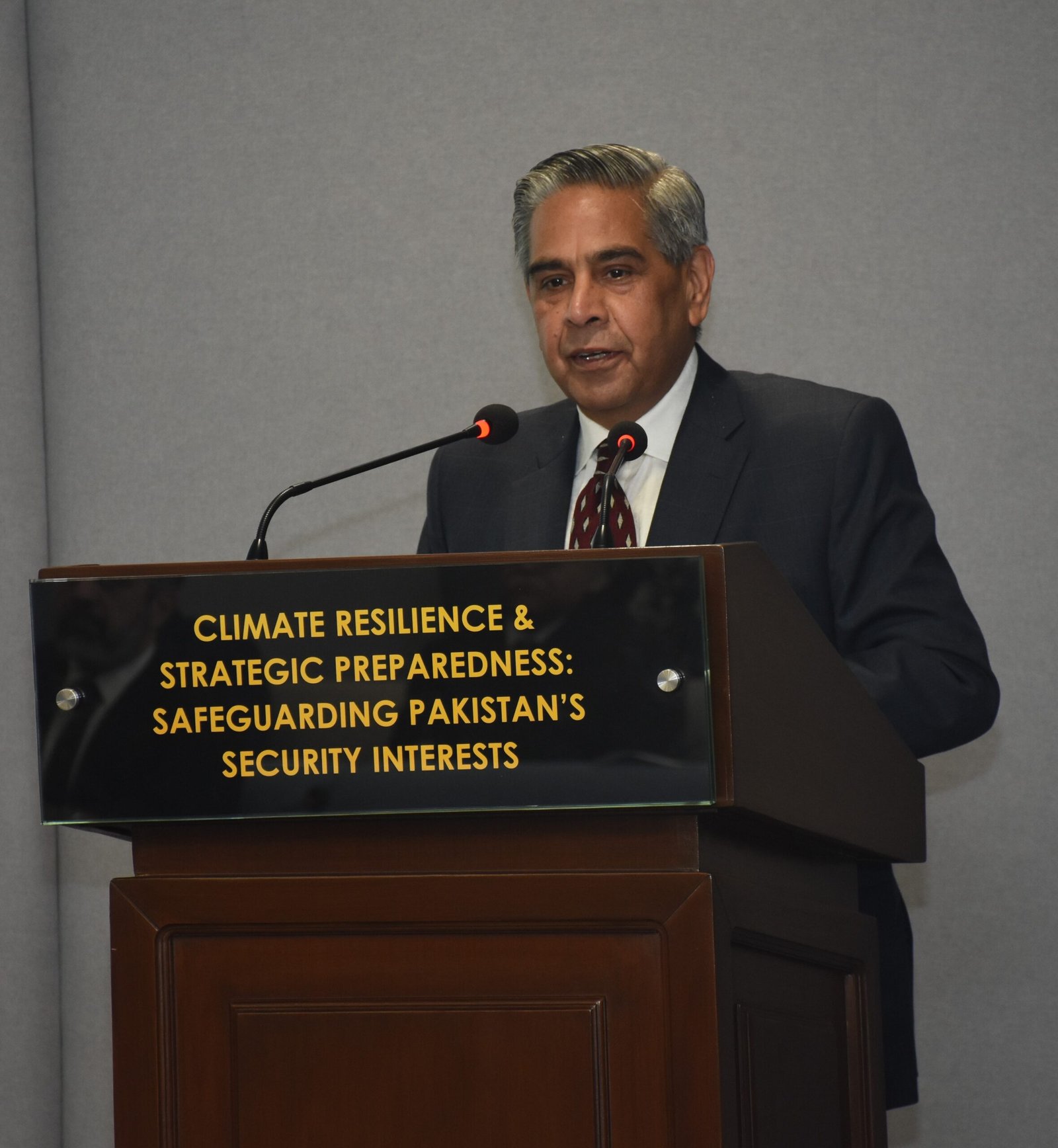
Mr Ali Tauqeer Sheikh
Member, Pakistan Climate Change Council
Mr Ahmad Rafay Alam
Environmental Lawyer & Activist
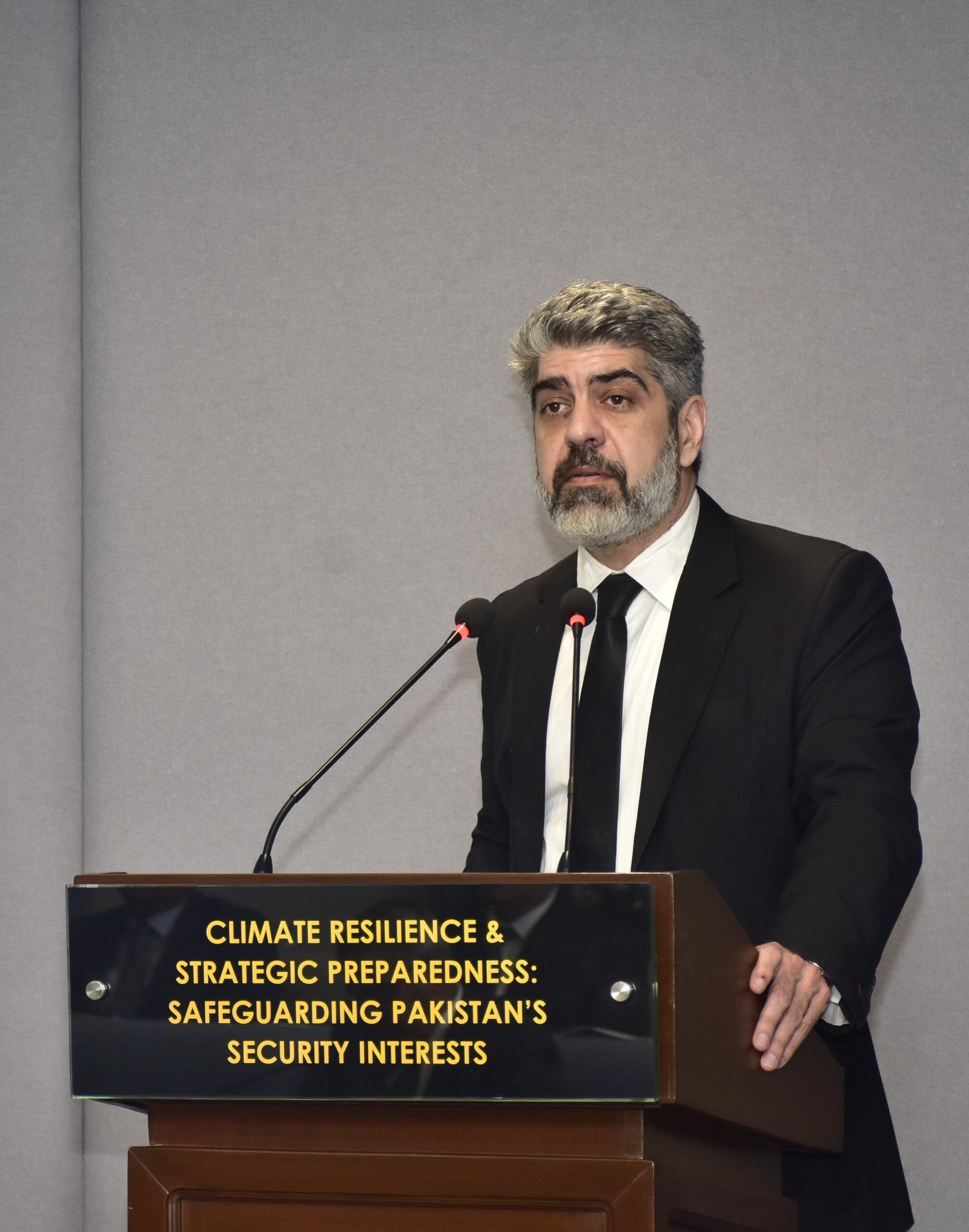
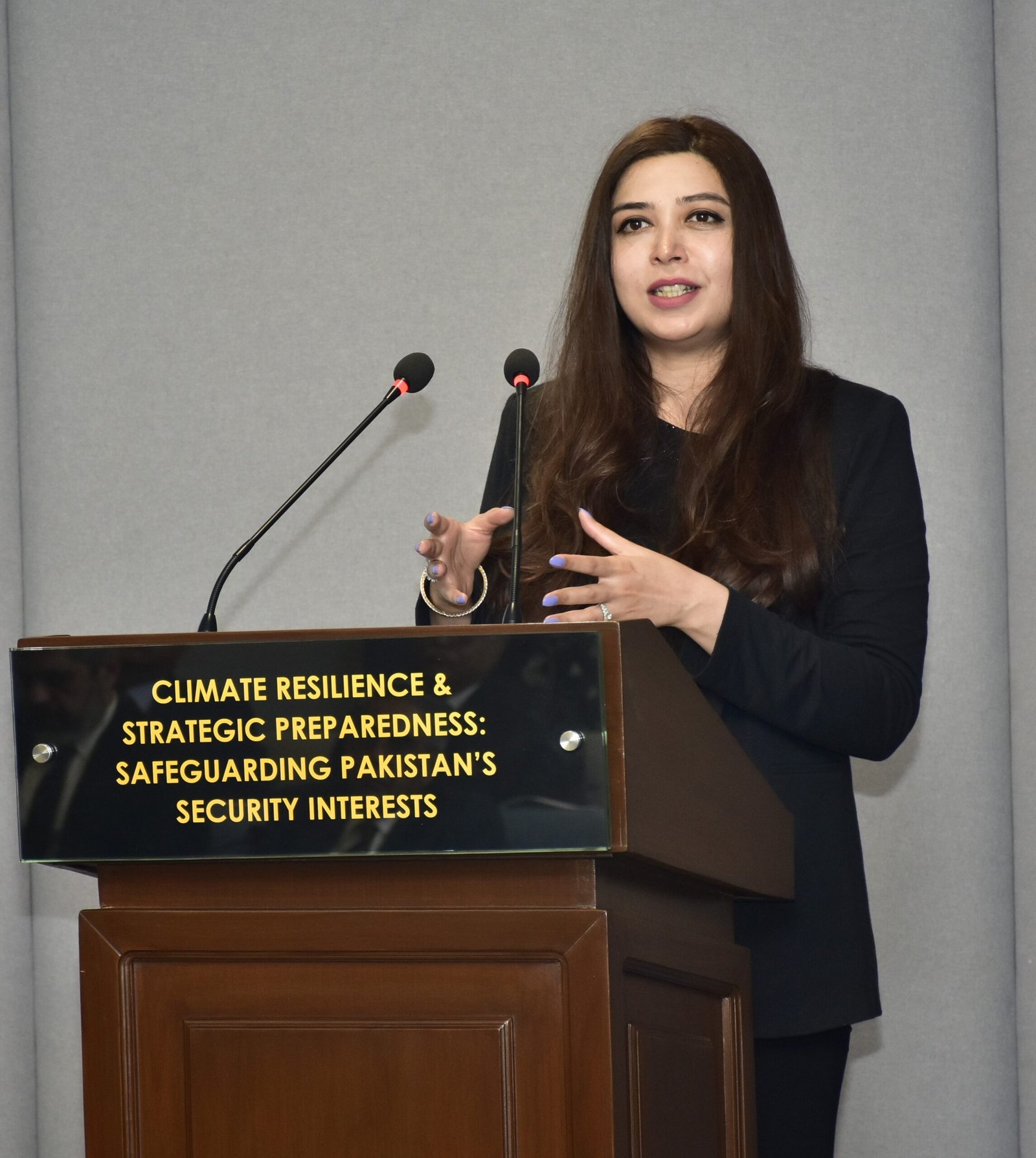
Ms Sara Hayat
Climate Change Expert
CASS Speakers
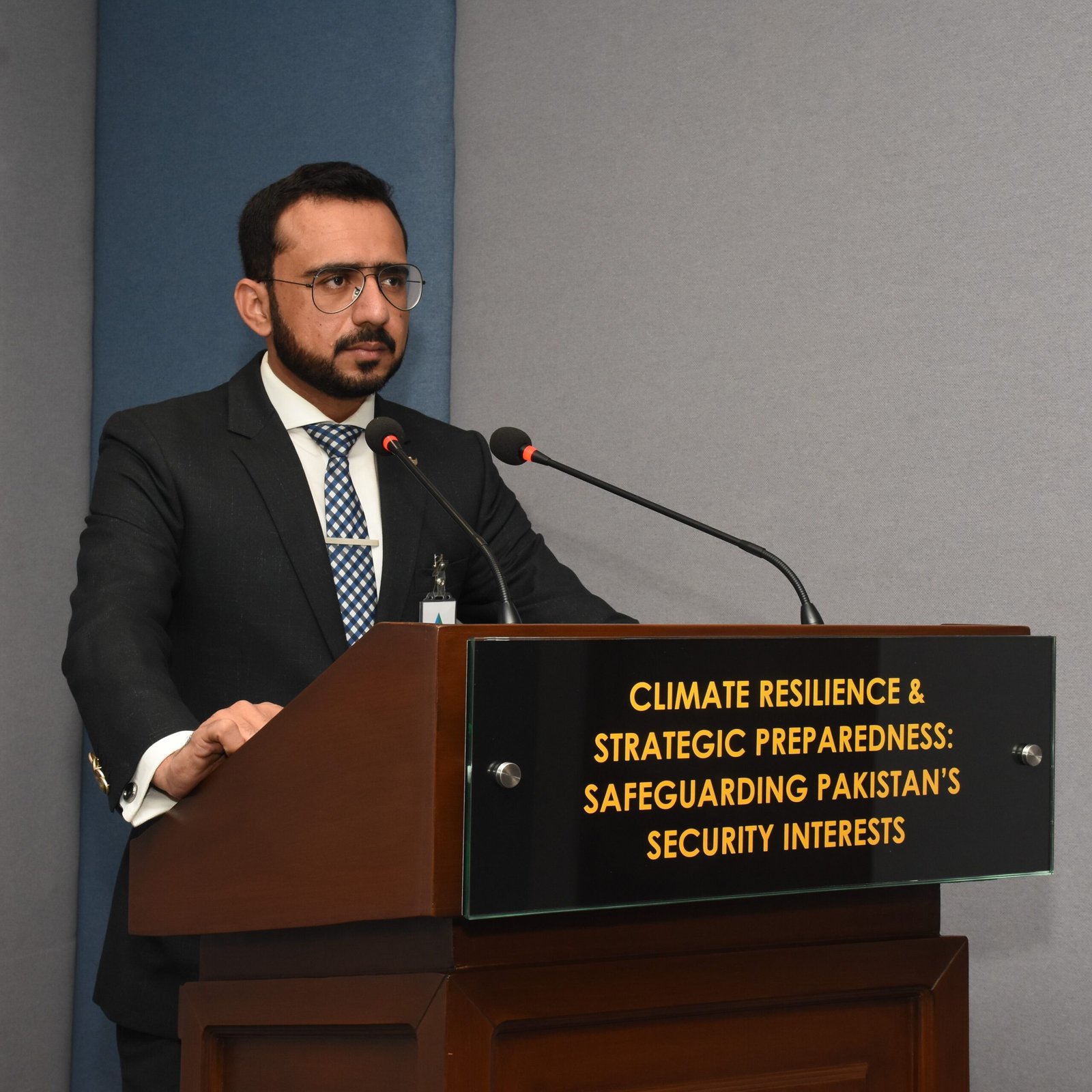
Ameer Abdullah Khan
Senior Researcher, CASS Lahore
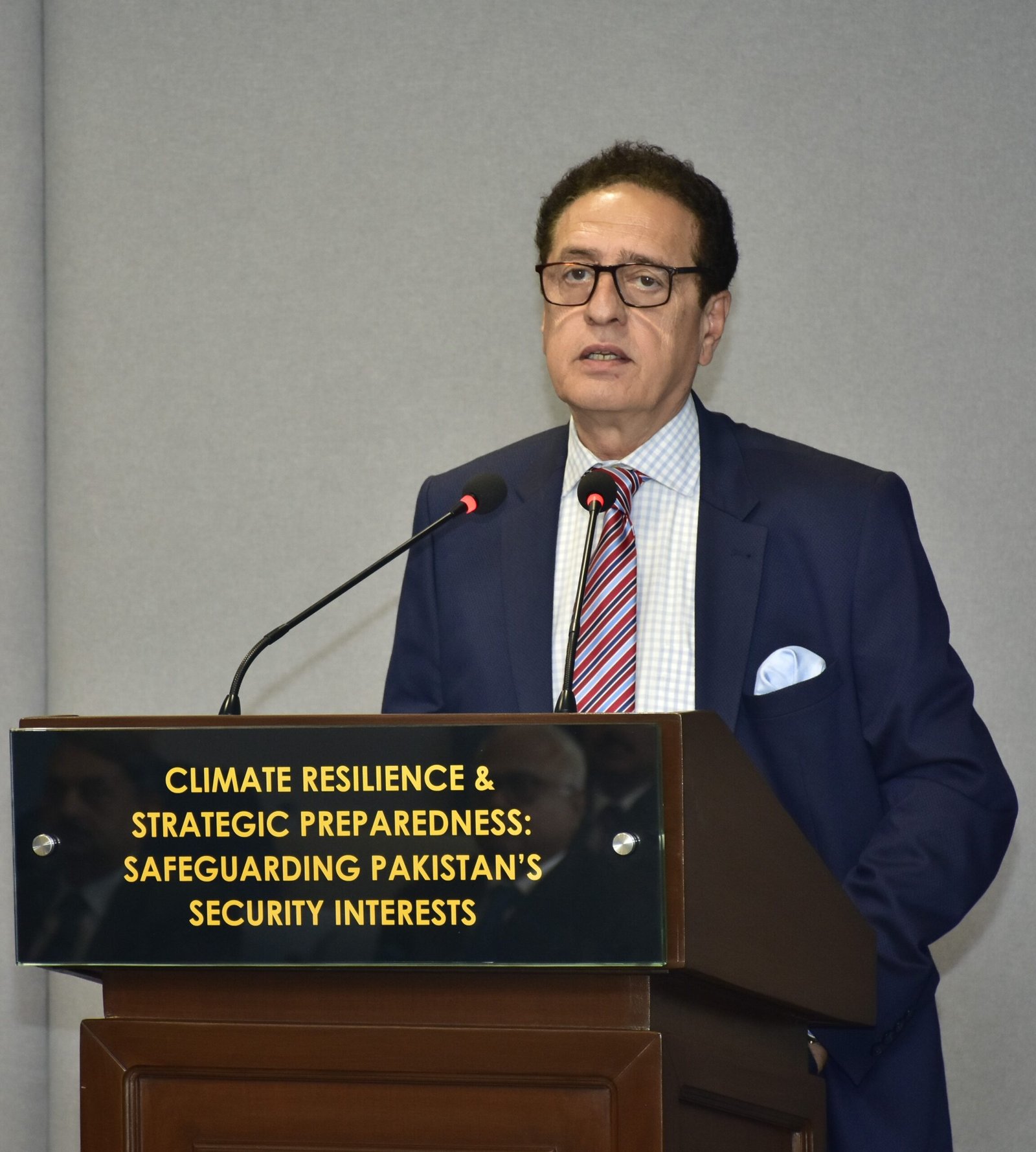
Air Marshal Asim Suleiman (Retd)
President, CASS Lahore
Master of the Ceremony
Researcher
Maheera Munir
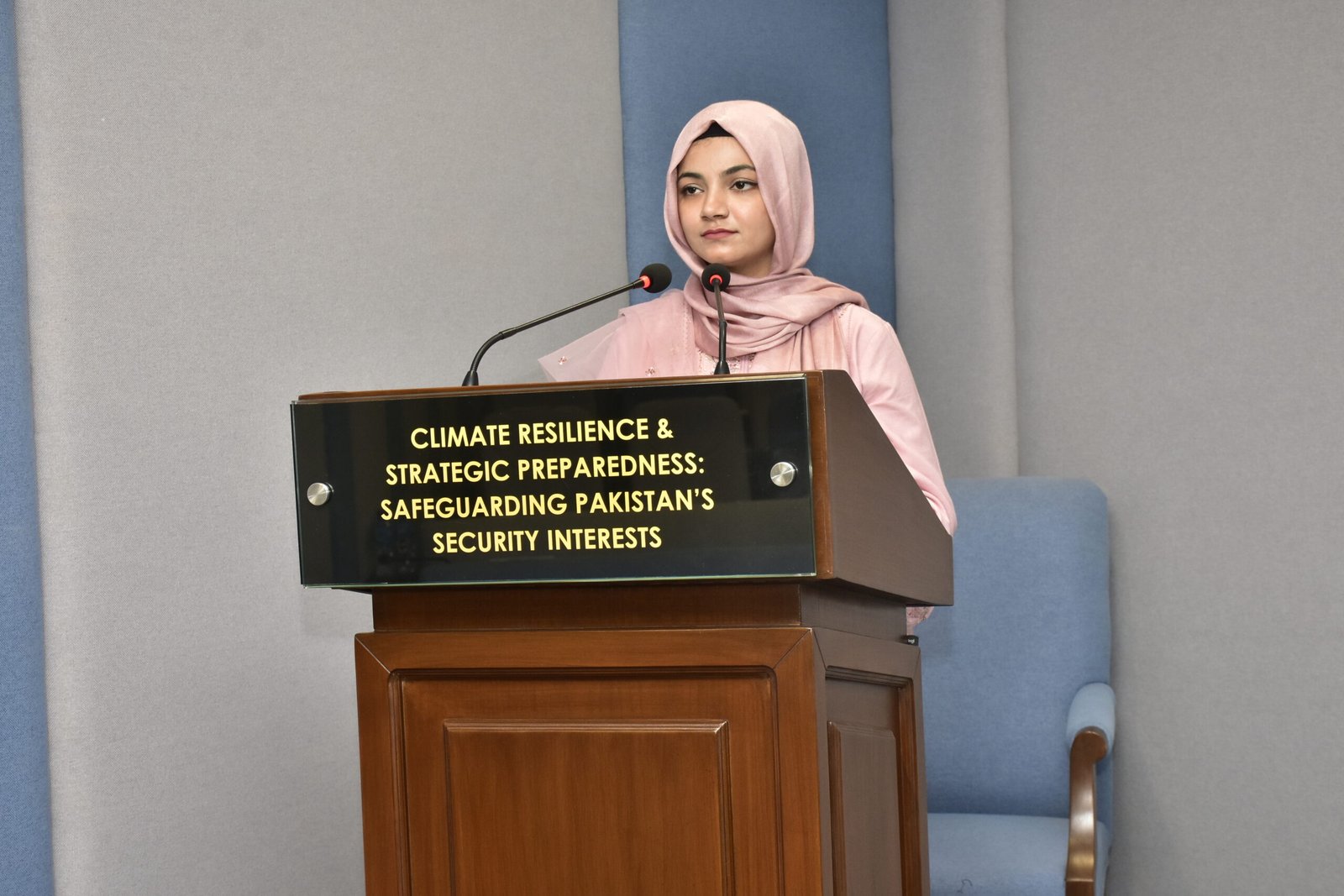
CASS LAhore

The Centre for Aerospace & Security Studies (CASS) was established in July 2021 to inform policymakers and the public about issues related to aerospace and security from an independent, non-partisan and future-centric analytical lens.


